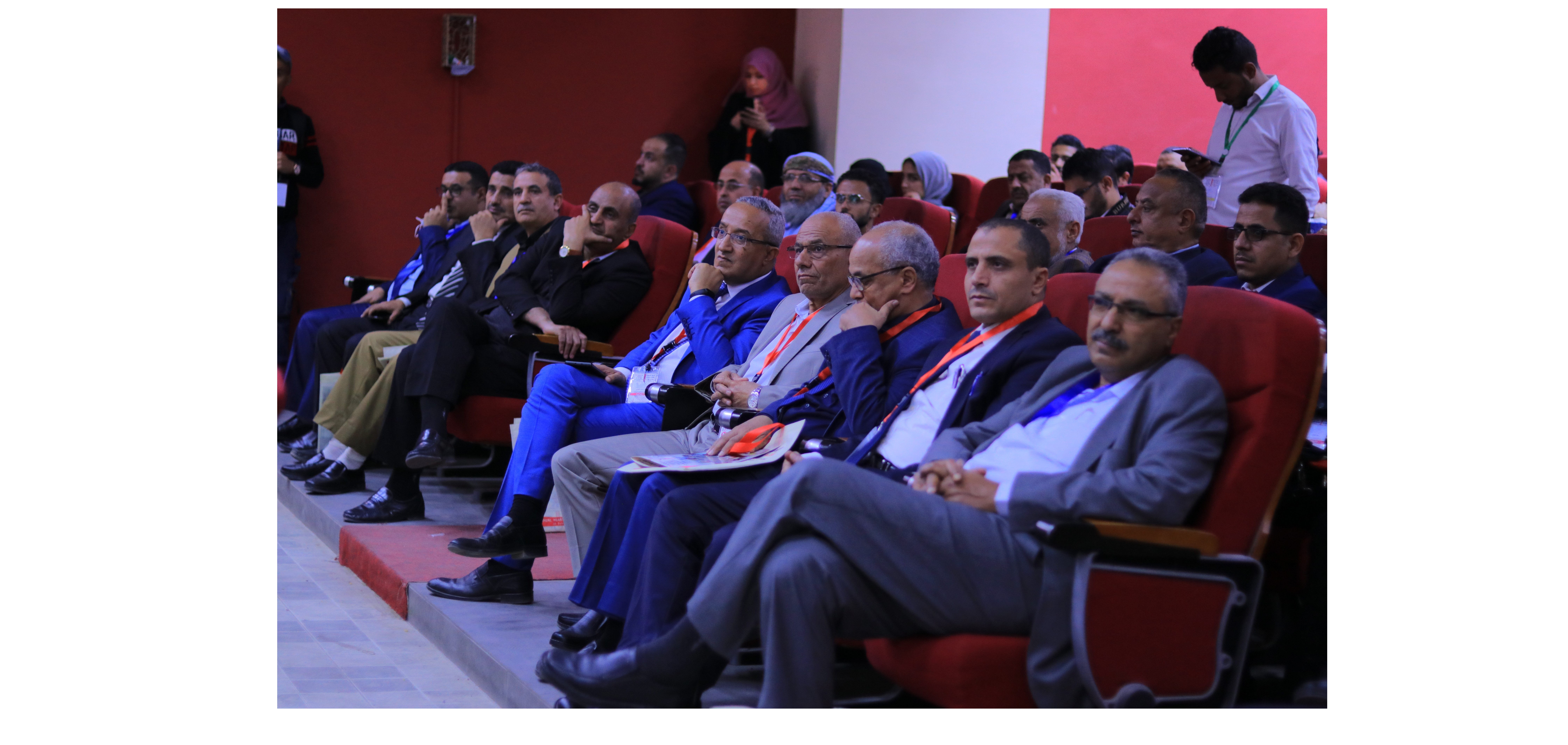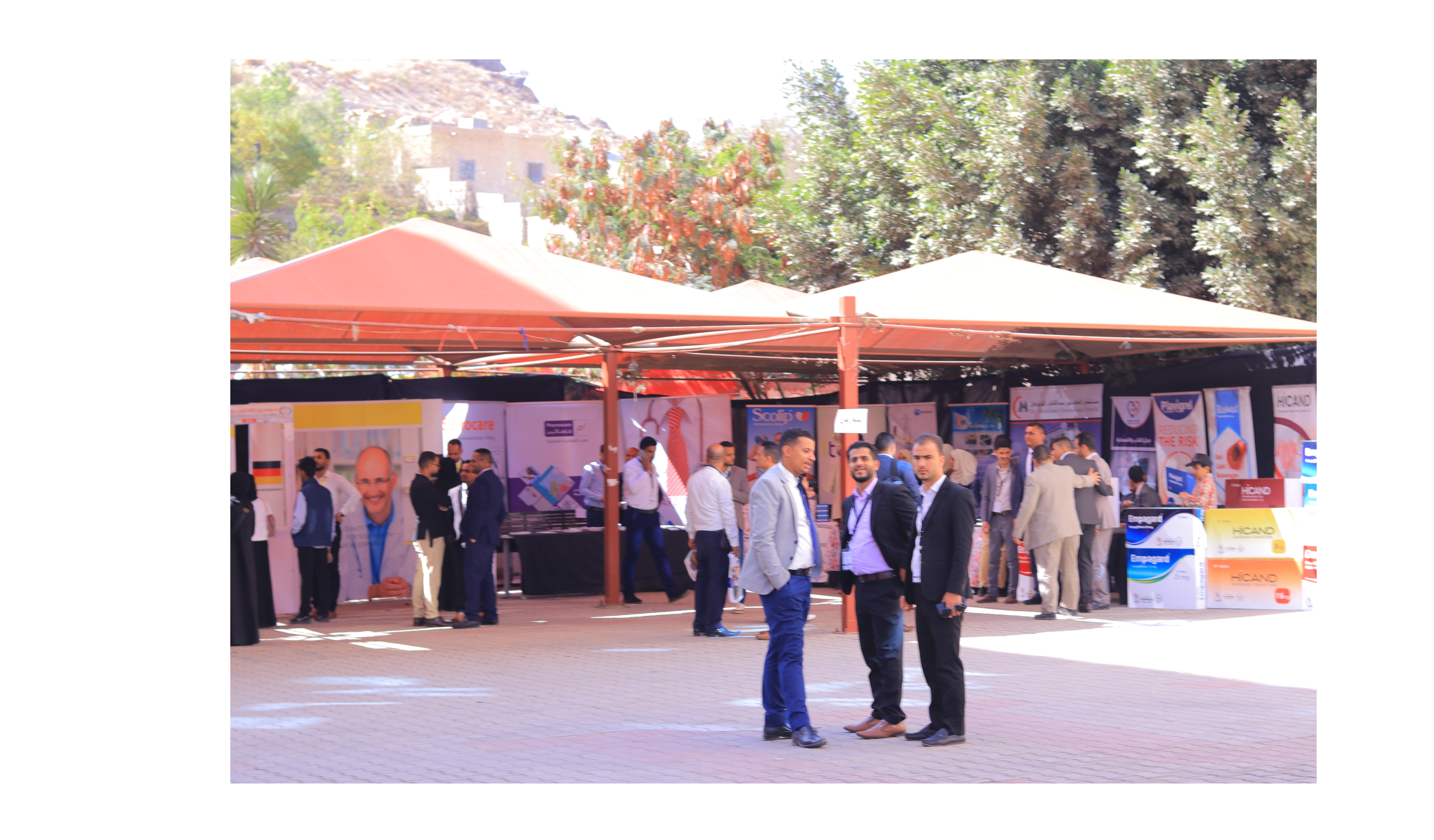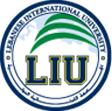Welcome to the School of Pharmacy & Medical Sciences (SPMS)
A Message from the Dean of the School of Pharmacy & Medical Sciences
Medical sciences continue to grow and branch. The global trends in medical sciences, academically and in practice, is towards professional specialties.
That is, the trend is to produce more of professional graduates who are skillful enough to directly serve the patient and the community.
The School of Pharmacy and Medical Sciences in the International Lebanese University-Yemen (LIU-Yemen) incorporates three departments:
Clinical Pharmacy Department, Biomedical Science, and Nutrition and Dietetics. We work hard in the school to produces professional graduates who are well trained to provide clinical
care in various healthcare settings.
Our school is equipped with the required facilities for efficient learning in addition to a unique, comprehensive hospital-based training programs. Furthermore, and most importantly,
the programs in each of the three departments are supervised and delivered by distinguished staff, actually they are elites.
Abdullah Aldahbali, MClinPharm, PhD, PostDoc
Dean, School of Pharmacy & Medical Sciences
Email: abdallah.dahbaly@ye.liu.edu.lb
SPMS Vision
The vision of the School of Pharmacy and Medical Sciences is to be a socially accountable institution committed to advance the Pharmacy, Nutrition & Biomedical profession through education, practice, research, and community outreach.
|  |
SPMS Mission
The mission of the School of Pharmacy and Medical Sciences is to develop distinguished professionals in practice, research and community services through a dynamic educational program aligned with national and international standards.
|  |
SPMS Objectives
1. Preparing professional leaders to optimize patient care.
2. Developing a distinguished professional organization qualified in education, practice and research.
3. Creating an environment that values community engagement and improves the quality of patient’s life.
4. Promoting faculty, staff, students, and alumni development and growth.
5. Advancing the school dynamic program aligned with national and international educational standards.
6. Supporting collaborations for multidisciplinary research and affiliations with various practice settings.
|  |
Programs of Study
The School of Pharmacy and Medical Sciences offers programs leading to the degrees in all major areas listed below.
| Program Type |
Program Title |
Credits |
| Undergraduate |
Clinical Pharmacy |
173 |
| Undergraduate |
Biomedical Science |
138 |
| Undergraduate |
Nutrition & Dietetics |
129 |
| Graduate |
Master of Clinical Pharmacy |
36 |
|
Please click on the desired school.
Vision
To change the face of traditional pharmacy through providing outstanding pharmaceutical care.
Mission
To improve healthcare outcomes through offering unique and competitive high quality clinical pharmacy education program, producing outstanding graduates, conducting innovative research and providing exemplary professional and innovative sustainable solutions for community needs.
Objectives
1.Providing students with the basic principles and fundamentals of pharmacy education.
2.Promoting the correct and appropriate use of medicinal products and devices.
3.Maximizing the clinical effect of medicines, i.e., using the most effective treatment for each type of patient.
4.Providing students with information technology and communication skill to work in harmony with health care team.
Program Intended Learning Outcomes
Knowledge and Understanding
A1. Review the knowledge facts and principles of both basic and medical sciences.
A2. Identify the role of each of the pharmaceutical sciences in the development and use of pharmaceutical products.
A3. Discuss disease pathophysiology and patient’s clinical presentation.
A4. Relate the biologic effects of medicinal substances to their physicochemical properties and their interactions with the living systems.
A5. Recall the ethics and methods of scientific research.
Intellectual Skills.
B1. Conceptualize pharmaceutical care as the standard framework of clinical pharmacy services in various healthcare settings.
B2. Integrate patient’s demographic, social, and health data to discover drug-related problems.
B3. Compare alternative therapeutic plans for each drug-related problem based on evidence of effectiveness, safety, and cost.
B4. Create a patient-specific pharmaceutical care plan to achieve definite outcome for each drug-related problem.
B5. Propose research ideas based on practice gaps and improvement opportunities..
.
Professional and Practical Skills.
C1. Provide pharmaceutical care professionally in various pharmacy practice setting.
C2. Communicate effectively with patients and other health care professionals.
C3. Contribute in developing, implementing and monitoring pharmaceutical care plan.
C4. Counsel patient on the purpose and expectations of drug therapy.
C5. Document pharmaceutical care steps in patient medical record.
C6. Respond to drug information requests in systematic manners.
General and Transferable Skills
D1. Advocate leadership by initiating and advocating change to develop new opportunities in response to problems they identify.
D2. Develop presentation, promotion, marketing, business administration, numeric and computation skills.
D3. Capability of time management, critical thinking, problem solving, decision-making and team-working.
D4. Communicate clearly by verbal and written means.
Vision
To achieve leadership and excellence in the field of education and qualification of medical laboratory science and research in national and regional level.
Mission
To provide advanced education and training to prepare highly competent medical laboratory scientists to serve patients and healthcare professionals while demonstrating high ethical standards.
Objectives
1.Provide students a superior and comprehensive educational program in medical laboratory sciences.
2.Enhance critical thinking skills.
3.Gain practical skills related to the laboratory field.
4.Employ modern information technology related to the health and research field.
5.Collaborate with internal and external partners to achieve the research needs of the profession.
6.To graduate individuals exhibiting sense of commitment to the ethical and humane aspects of patient care, and recognizing the role in assuring quality health care.
7.Facilitate transfer of knowledge and skills to adapt to a current and evolving scope of biomedical science.
Program Intended Learning Outcomes
Knowledge and Understanding
A1. Demonstrate basic knowledge in basic sciences (biology, chemistry, and statistics) as well as in medical sciences (anatomy, physiology, biochemistry and microbiology).
A2. Discus the theoretical bases as well as the practical applications of biomedical sciences such as immunology, parasitology, hematology, homeostasis, and blood bank.
A3. Understand pathophysiological changes in disease states to abnormalities in the result of various medical lab results.
A4. Describe the principles and the techniques of various laboratory procedures and principles of instruments operation.
A5. Explain the role of medical labs to detect, diagnose, treat and monitor diseases treatment.
A6. Relate the principles of communication, social and administrative sciences to medical laboratory practice.
A7. Understand the concepts of safety and quality assurance management and their importance in medical laboratory practice.
A8. Recognize biological and analytical factors that affect the accuracy or interfere with the laboratory tests results.
Intellectual Skills
B1. Integrate knowledge from basic biomedical sciences in interpretation of laboratory data.
B2. Differentiate disease-related abnormal lab results from those due to errors and interferences.
B3. Combine patient information, clinical scenario and technical skills to avoid misinterpretation of lab test results.
B4. Merge evidence-based information and critical thinking for proper decision making in medical laboratory practice.
B5. Design research proposal in various fields of medical laboratory practice.
Professional and Practical Skills
C1. Collect, transport, preserve, store, and dispose common clinical samples according to Standard Operating Procedures (SOPs).
C2. Perform laboratory diagnostic tests commonly encountered in a hospital laboratory and research field.
C3. Apply scientific knowledge and technical skills in operating and maintenance of lab equipment and tools.
C4. Apply the principles of medical laboratory knowledge and technical skills in promoting accurate, precise, timely, and cost-effective medical laboratory service.
C5. Apply computer technology in clinical laboratory data processing, data reporting and information retrieval.
C6. Conduct research projects in the field of biomedical science with sense of social responsibility.
C7. Prepare process, interpret and present data using appropriate qualitative and quantitative techniques, statistical programs, and spreadsheets for presenting data.
C8. Apply principles of finance, marketing and human resources to manage difference medical laboratory practice /service.
General and Transferable Skills
D1. Demonstrate ethical behavior with patients, colleagues and health care workers.
D2. Apply the skills acquired in program for effective leadership and advocating change to develop new opportunities for improvement.
D3. Develop presentation, promotion, marketing, business administration, numeric and computation skills in biomedical science.
D4. Independence critical thinking, problem solving, decision-making and team-working.
D5. Communicate effectively with other healthcare professionals, patients and exhibit professional ethics, attitudes and behaviors and respect for others.
D6. Engage in continuous education and long-life learning.
D7. Manage time efficiently to accomplish the tasks and technical work under pressure to reach a correct diagnosis of the patient's condition.
Vision
Achieving the excellence in the field of nutrition and dietetics locally and regionally.
Mission
To contribute to health and well-being by providing highly qualified nutrition and dietetic professionals.
Objectives
1.Create suitable environment for educational and practical purposes in the field of nutrition and dietetics.
2.Supply medical professions with competent graduates.
3.Contribute in community services.
4.Increase awareness about the role of nutrition.
Program Intended Learning Outcomes
Knowledge and Understanding
A1. Illustrate fundamental knowledge in basic and medical sciences in relation to food and nutrition.
A2. Review the basics of pathophysiology of diseases, and explain the role of nutrition, nutrients, and dietetics in disease prevention and treatment.
A3. Identify the principles of communication, social and administrative sciences, and relate them to the clinical practice of nutrition & dietetics.
A4. List properties and composition of different food products, and explain their values in both health and disease states.
A5. Describe the basic principles to design and conduct research related to production, use, and quality of nutritive products.
Intellectual Skills
B1. Merge knowledge from basic and medical sciences in the formulating and implementing safe and effective nutritional therapy.
B2. Integrate knowledge from nutritional and non-nutritional sciences to evaluate the nutritional needs in a patient-centered plan.
B3. Appraise concepts, literature and technologies and critically.
B4. Consolidate the principles of nutritional, medical and nonmedical sciences for proper regimen selection among alternatives.
B5. Propose steps of calculating and modifying the required values of various macro and micro nutrients and calories.
B6. Appraise evidence-based information in the practice of nutritional sciences.
Professional and Practical Skills
C1. Apply principles of economics and sociology in food service management.
C2. Develop educational services, and disseminate information to community and patients about the importance of correct nutritional behaviors.
C3. Communicate effectively with other healthcare professionals and patients with professional ethics, attitudes, and behaviors.
C4. Develop public awareness on the importance of optimal nutrition.
General and Transferable Skills
D1. Advocate leadership by initiating changes response to problems.
D2. Develop presentation, promotion, marketing, business administration, numeric and computation skills.
D3. Capable of time management, critical thinking, problem solving, decision-making and team-working.
D4. Communicate clearly by verbal, non-verbal and written means.
Mission
Producing highly qualified, practically-oriented, patient-centered, lifelong learning pharmacists with leadership capabilities to shape the future practice of pharmacy.
Objectives
1.Create, evaluate, improve, and disseminate innovative, transformative pharmacy practice models that result in safe, cost-effective, and morally driven patient-centered care.
2.Prepare graduates to become leaders who improve the health and wellness of individuals and communities and advance pharmacy practice into the future.
3.Stimulate a culture that promotes diversity of thought and lifelong learning within an exceptional community of students, faculty and staff.
Program Intended Learning Outcomes
Knowledge and Understanding
A1. Explain pharmacodynamics & pharmacokinetics information, esp. those related to clinical use.
A2. Outline patient’s health-related data in disease states.
A3. Understand the basic principles and ethics of clinical research.
Intellectual Skills
B1. Integrate knowledge on drug & disease with patient-specific characteristics.
B2. Identify, classify, prioritize, and solve/prevent drug-related problems in each individual patient.
B3. Rationalize each drug in each individual patient.
B4. Incorporate evidence and best practices when making decisions.
Professional and Practical Skills
C1. Present information in an organized, logical fashion, with assessment & plan appropriate for clinical situation.
C2. Provide patient-centered care as a drug expert, and document & communicate such care with team members.
C3. Educate patients, and respond to drug information queries responsibly & professionally.
C4. Conduct & participate in clinical research, and implement policies to improve drug use.
General and Transferable Skills
D1. Effectively communicate verbally & nonverbally when interacting with an individual, group, or organization.
D2. Adopt, exercise, promote, and appraise the culture of critical thinking.
|
|
|
|
| |

|
|
© 2025 by Lebanese International University. All rights reserved.
|
|
|
|
